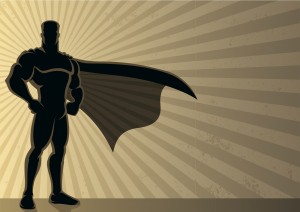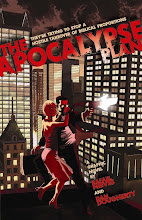ReligionLink.com is, by its own description, “a non-partisan service of Religion Newswriters” that is “by journalists, for journalists.” So, it’s understandable that they encourage religion writers to think further on the intersection of the comics-based genre of superheroes and religion in recognition of Superman’s 75th anniversary and new film. Clearly, Rao endorses this viewpoint, too.
However, the “background and expert sources” they claim to provide prove sadly lacking; though lengthy and exhaustive-looking, it reads as the result of Google searching and Amazon browsing rather than an actual, knowledgeable resource. Their list of recommended books leaves out any title that isn’t Judeo-Christian, and, similarly, their article list includes one mention of Islam in regards to coverage of The 99; likewise, their manifest of three dozen experts seems to only include one focusing on Arabs (the esteemed Fedwa Malti-Douglas) and one on occult practices (the weirdly unattributed Christopher Knowles). They even get Professor Malti-Douglas’s URL wrong!
But it’s easy to criticize. What else should have been there? Well… Continue reading ReligionLink Targets Comics, Misses a Lot


